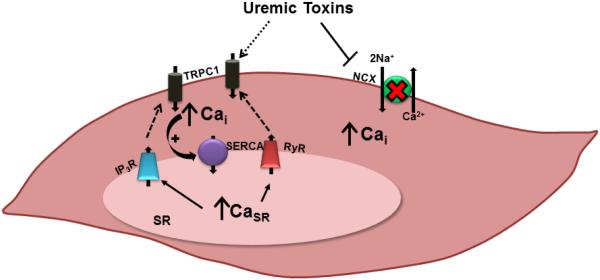Figure 1. A Schematic of Vascular Smooth Muscle Cell and Cardiomyocyte Calcium Regulating Transporters and Channels.
The presence of a variety of uremic toxins in the extracellular environment may either directly or indirectly contribute to the described perturbations in intracellular Ca2+ regulation. Elevated SERCA function drives increases in SR Ca2+ store capacity. To compensate for SR Ca2+ store overload, SR Ca2+ is released either by the RyR or by the IP3R, initiating signaling mechanisms triggering store-operated Ca2+ entry through TRPC1 channels. This phenomenon, together with reductions in NCX expression, cause resting [Ca2+]i to become elevated in CKD. TRPC1 = transient receptor potential canonical 1 channel; NCX = Na+/Ca2+ exchanger; Cai = intracellular free Ca2+; IP3R = inositol 1,4,5-trisphosphate receptor; SERCA = sarco/endoplasmic reticulum Ca2+ ATPase; RyR = ryanodine receptor; SR = sarcoplasmic reticulum; CaSR = SR Ca2+. (From [47])

